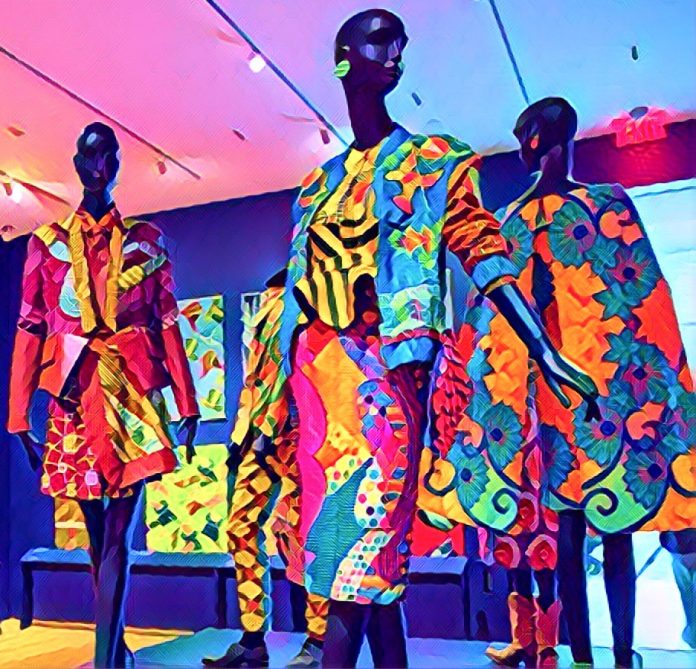KEY POINTS
- Nigeria fashion trends like Ankara and Aso Oke redefine modern couture.
- Celebrities are embracing Nigerian fashion, showcasing cultural heritage worldwide.
- Nigerian styles blend tradition and modernity, gaining international acclaim.
Nigerian fashion vividly represents culture, history, and creativity, going beyond mere apparel.
Many ethnic groups in Nigeria have woven their customs into designs impacting the fashion industry today.
Globally, these designs have started to take the stage and captivate individuals from many walks of life. Celebrating their colour, brightness, and meaning, celebrities, fashion icons, and multinational corporations are progressively adopting these designs.
Here are four unique Nigerian fashion trends that are making waves globally:
1. Ankara print: Bright and diverse expression
Renowned worldwide for its bright, vivid designs and deeply symbolic language, Ankara, sometimes called “African wax print,” has become an integral component of Nigerian fashion. Ankara’s unique bright colours come from the wax-resist dyeing method; each design usually tells a narrative or symbolizes cultural ideas. Originally employed in ceremonies and events, Ankara has gained entrance into international catwalks and city streets.
Ankara cloth is hailed nowadays for its adaptability. The fabric’s versatility has drawn international designers, which has resulted in its inclusion in Valentino and Stella McCartney collections. Moreover, international stars like Beyoncé, Rihanna, and Michelle Obama have worn Ankara, boosting its value and global respect. Ankara is a worldwide declaration of African pride and invention.
2. Adire: The tie-dye craftsmanship’s beauty
Another traditional cloth with global interest is adire, which means “tie and dye” in Yoruba.
Artisans create Adire using resist-dyeing techniques, resulting in distinctive and sometimes complex designs by folding and binding the fabric, either hand-drawn or crafted in other ways. Every piece of Adire cloth is a work of art using its colours and designs to convey stories.
Thanks to its unique design and cultural relevance, Adire has lately attracted renewed interest in the runways and international streetwear. Nigerian designers have revived it by employing contemporary styles, appealing equally to international fashion firms and fans.
Adire’s profound connection to Nigerian history and partnerships between Nigerian artists and big international companies have helped restore interest.
3. Kaftan and agbada: Traditional regalia with a global twist
Traditionally worn mostly by males, Kaftans and Agbada are Nigerian attires that are also rather popular among ladies. The agbada is a wide-sleeved robe sometimes embroidered with complex patterns; the kaftan is a long, flowing gown. Usually worn in ceremonies, these clothing reflect grandeur and ethnic pride.
Both Kaftans and Agbadas have been reimagined in the global fashion setting, Agbada on red carpets has been seen worn by influencers, highlighting its adaptability and grandeur.
Designers are turning Agbada into an international symbol of Nigerian legacy by incorporating its flowing form into new collections globally.
4. Gele: Headwrapping as a fashion statement
Originally from Nigerian women’s traditional background, the gele—a headwrap—has developed into an international fashion statement. Gele has long been worn at rituals, acting as a prestige, elegance, and cultural pride symbol. Although, there are several ways to tie a gele to reflect different events or moods.
Celebrating its ethnic roots, gele has boldly appeared as an accessory on runway shows and in international fashion magazines. Its comeback has also gained momentum through the internet, as social media widely shares gele-tying instructions, bringing this ancient craftsmanship to a larger audience.
Gele’s sculptural elegance and impression have attracted people across the globe.
5. Aso Oke: Traditional royalty merging modern elegance
Aso Oke, a traditional handwoven fabric from the Yoruba people of southwestern Nigeria, has long been associated with cultural royalty and identity. It was traditionally only served to the affluent, which is evidence of its connection to celebration and royalty.
However, Aso Oke has had an intriguing transformation in recent years. Nigerian fashion designers are reinventing this historic fabric by fusing it with modern styles. These days, it can be seen in contemporary streetwear collections and on international runways alongside traditional settings.
Aso Oke’s cultural character is preserved by this contemporary representation, which also makes it up-to-date and attractive for today’s stylish shoppers.
Factors contributing to the global appeal of Nigerian fashion
There are various reasons why Nigerian fashion appeals internationally.
Social networking sites like Instagram and TikHub have greatly enhanced these unique fashion trends. Using these channels, Nigerian and diaspora fashionistas and influencers have highlighted Ankara, Adire, Kaftans, Gele, and Aso Oke generating viral events that grab the attention of people all over.
Furthermore, Nigerian designers have established themselves in big fashion events like Lagos Fashion Week, which has developed to be a significant venue for presenting African innovation. Designers including Lisa Folawiyo, Mai Atafo, and Deola Sagoe are becoming well-known globally for their ability to combine modern global designs with traditional Nigerian components.
Ultimately, Nigerian fashion will shape the future of what we wear by leading a movement that reflects cultural pride, promotes sustainability, and celebrates global creativity, all while drawing inspiration from diverse cultures.



